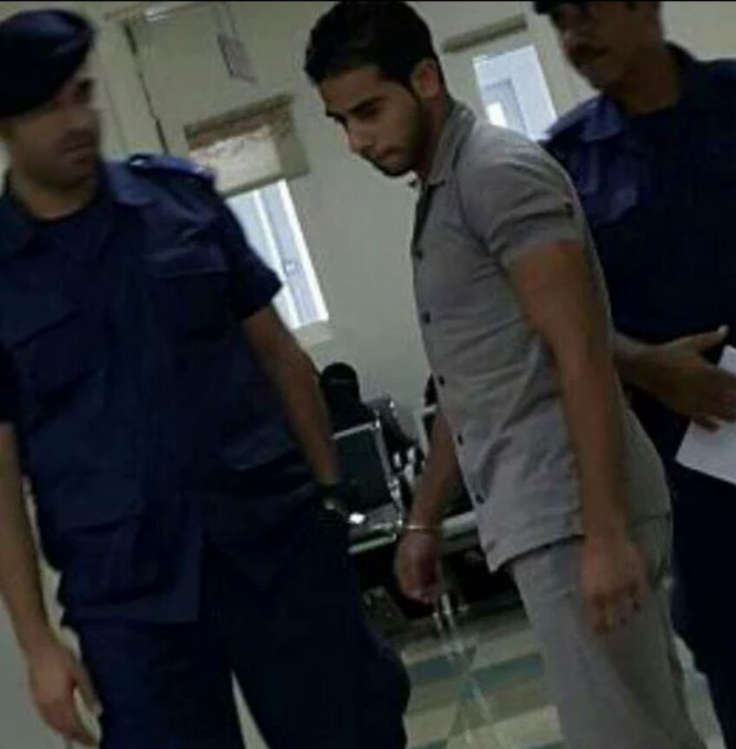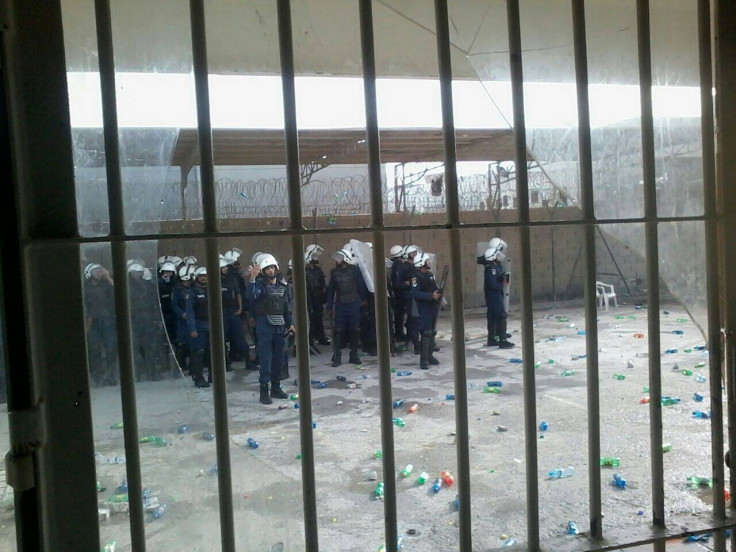My terminally ill son is being tortured in a Bahraini prison, yet the UK government remains silent
KEY POINTS
- After being diagnosed with stage 3 colon cancer, Elyas Al-Mulla continues to be tortured and held in his cell.
- Middle East Minister Alistair Burt praises Bahrain for creating human rights oversight bodies.
When I first saw my son Elyas after he was tortured in a Bahraini prison, it was he who consoled me.
He said: "Mum, don't cry. The cameras are on us. I don't want to see you like that, don't let them use it against us. I will tell you what I've been through, stay calm as I do."
With great difficulty, I have held my sorrow inside – but I have never stayed silent. Elyas is dying in prison, and must be freed so he can fight the cancer that is killing him. He has been failed by the Bahraini justice system. This month he was again failed by the UK's Middle East Minister Alistair Burt and the Foreign Commonwealth Office, who visited Bahrain knowing about my son's case and stayed silent on human rights.
Elyas was just 21, a fit and healthy young man, when he was arrested in 2012 at our home by Bahrain's security forces. In detention, they beat and tortured Elyas and prevented him from sleeping, until he finally signed prepared confessions and was sentenced to 15 years in prison.
In March 2015, security forces abused him along with hundreds of other inmates. In the notorious incident at Jau Prison, where torture of detainees is common, the inmates were collectively punished for weeks. Elyas choked on tear gas chucked down corridors and into rooms. Several police officers beat Elyas violently on his stomach.
We discovered the cancer months later, in August 2015. Elyas had been in prison for three years by then. The prison didn't inform us when they transferred Elyas to the Bahrain Defence Force Hospital.
We found out from another inmate, who used his precious weekly phone call to give us the news. We rushed to hospital, but the security forces denied us entry. It was 5 August: that same day, Elyas underwent surgery, and a sample of his colon was taken for analysis.

It was five days before I was allowed, finally, to see my son. He looked exhausted. Prison, torture and disease have aged him far beyond his 24 years. The hospital staff gave us the diagnosis: stage 3 colon cancer. They had not informed him, and instead left it to me to break this news to my son.
Elyas has been fighting his cancer for two years now. His health is worsening, and the prison's negligence is a root cause. The prison often neglects to take him to hospital for appointments that are sometimes set months in advance.
But when they do take Elyas to hospital, it is an ordeal. Elyas's immune system is not working properly, yet he is transported in an armoured vehicle without ventilation, often with inmates suffering infectious diseases. They cuff him by the wrists and ankles, as though my son, who can barely eat or sleep, poses a threat. When he was receiving chemotherapy, they would not even let him rest: as soon as treatment ended, he was on the way back to prison. By the end of the day, he'd be suffering severe back pain and bleeding from the legs because of the cuffs and chains.

This year, prison conditions have been steadily worsening. Elyas is kept in filthy prison conditions, and trapped in his cell for 23 hours a day. Bahrain is violating its own law in leaving prisoners to die. Elyas is being denied access to needed medication. The hospital cannot prescribe it without a stool analysis, but for the past month and a half the prison has failed to provide a container for Elyas. My boy lives in excruciating pain. He has told me he would rather die than be subject to this continued humiliation.
When Elyas was first diagnosed with cancer, his lawyer wrote immediately to the judiciary requesting his release. Bahraini law states that a detainee suffering a life-threatening illness may have their penalty postponed. The letter never received a response. Yet the support for Elyas has been heart-warming. The UK-based Bahrain Institute for Rights and Democracy (BIRD) helped us raise the issue in the British parliament, and we are grateful to Tom Brake MP, who asked the Foreign and Commonwealth Office if they will raise Elyas' case with the Bahraini government.
It took a month for the Middle East Minister Alistair Burt to respond with just two sentences: "We encourage those with concerns about treatment in detention to report these to the relevant human rights oversight bodies. The UK continues to encourage the Government of Bahrain to deliver on its international and domestic human rights commitments."
Yet I have submitted eight complaints to Bahrain's Police Ombudsman since 2015 and received no help. The first complaint was about Elyas' torture alongside hundreds of other inmates in Jau Prison in March 2015, when officers beat him senselessly. I received no response.
I was appalled when Mr Burt visited Bahrain this month and praised "the creation of the human rights oversight bodies and the development of effective and accountable justice institutions". Mr Burt knows about my son's case, and the cases of so many others suffering today, yet there is no indication that any concern was raised.
If such bodies and institutions actually existed, as Mr Burt and the British Embassy in Bahrain insist, then Elyas would not be dying in prison.






















